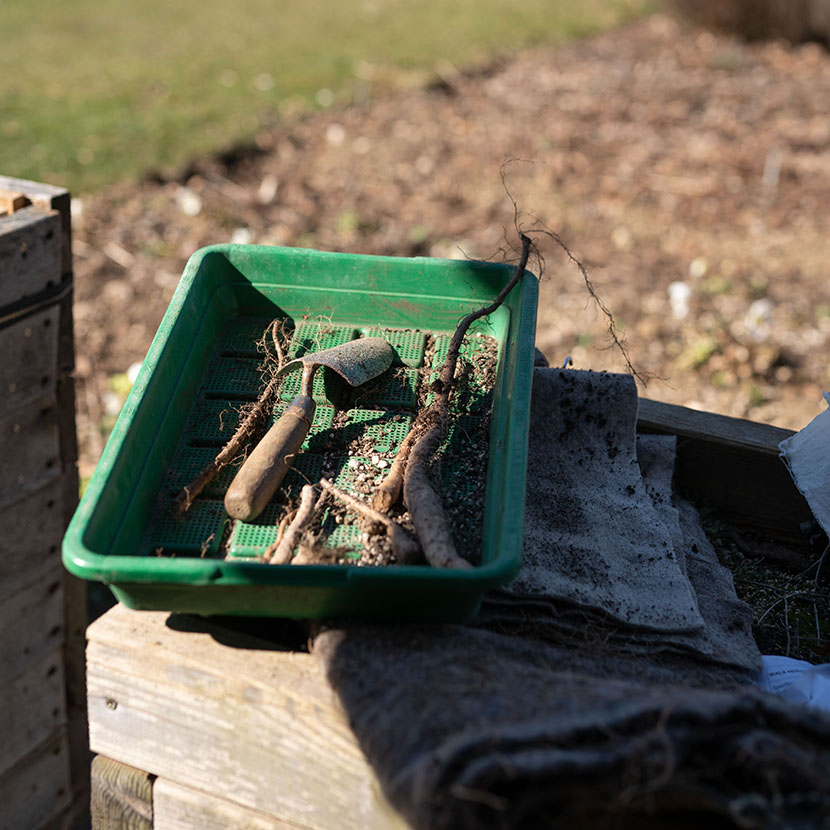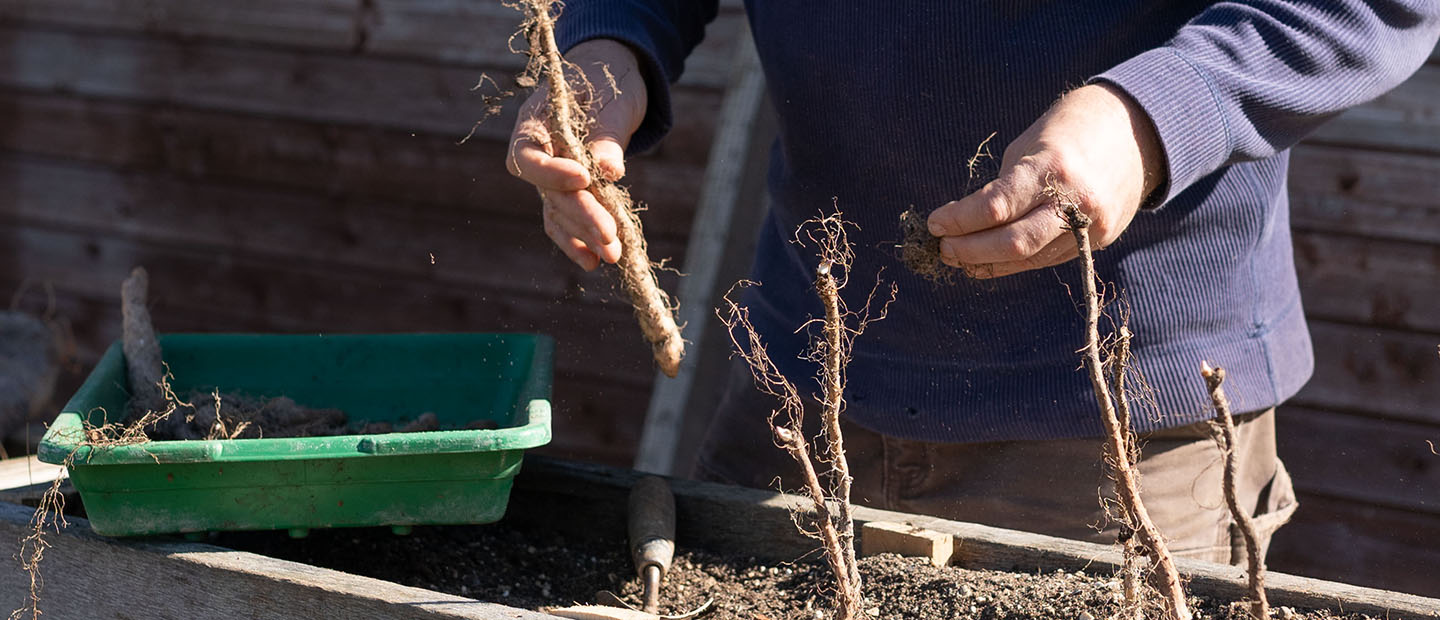Interview with Bernhard Ehrmann
The source of valuable raw materials.
When harvesting nurturing plants for Dr. Hauschka Skin Care, one favorite source is from our own biodynamic herb garden. This is located directly behind our oldest company building in Eckwälden.
Mr Ehrmann, what does quality mean to you in your everyday work in the WALA medicinal herb garden?
When conducting our gardening work, we believe it is important to consciously monitor the processes and think in cycles. How do the soil, plants, animals and people work together in the garden? Our garden has an array of different habitats: shady, wooded areas and sunny spots, a stream, a pond, windy corners and damp ones. How can we prepare the garden in such a way that plants can become medicinal plants in it?
What turns a plant into a medicinal plant?
If you imagine a plant, your mind creates a picture of a balanced form with roots, a stem, leaves and petals. A medicinal plant differs from this ideal. For example, it may have either extremely long or very short roots. It may flower at an unusual time of year or grow the best in extreme climate conditions. In our garden, we allow medicinal plants to express their natural being as they grow.
That almost sounds like you regard the medicinal plants as equal, highly individual partners.
Yes, you could definitely see it that way. We are each even responsible for looking after particular medicinal plant species and take great care to meet their needs.
What does this plant care involve?
You could say that the people who tend the plants act as spokespeople for them. For example, our gardener Tine Janssen looks after all the wood sorrel. She monitors it very closely and makes sure that it can grow in the best place in the garden for it. Wood sorrel is a forest plant that we enable to grow under trees. Tine can tell if wood sorrel is not as healthy as it should be and needs some extra special care. As the optimum harvest time approaches, she monitors the wood sorrel daily – together with her colleagues in the plant laboratory who will later process it. Together, they choose the precise day on which to harvest the plants. Marigold petals for medicines can even only be picked by plant laboratory staff as these have very specific requirements with regard to the condition of the flowers: they must have already opened but not yet be in full bloom. Fortunately, the plant laboratory is located right next to our garden. The freshly harvested medicinal plants can therefore be taken straight there for processing.

The WALA medicinal herb garden uses biodynamic cultivation methods. What makes these special?
Wherever possible, the biodynamic garden represents a closed cycle. We collect the seeds and use them to grow the next generation of plants. We regard the soil as a living organism. Plant waste from the garden and the production processes is put on our compost heaps. You could refer to these as the heart of the garden. Not only do they provide fertilizer for the beds but mature compost also helps to regulate and mediate the processes in the garden.
Compost regulates and mediates? What do you mean?
On the one hand quite simply that plant materials from all times of year come together on the compost heap. The diversity offered by the garden is brought together in a single place. This is like taking a long, deep breath in. We then give the compost plenty of time to mature. For two-and-a-half years, we leave the plant materials to rot, experience the qualities of the different seasons and form something new. This is an intensely harmonious process. After all, harmony means bringing together contrasting elements to form a uniform whole. We could speed up the process by frequently turning the compost. But that is not something we want to do.
Why is it so important to allow the compost to mature for so long?
Only with time and our compost management can the rotting process take place in an orderly, harmonious manner. We support the process through the addition of medicinal herbs and by turning the compost just twice a year. As we turn the compost, we notice its smell, color and consistency. At some point, we will see that it has fully matured. Mature compost is a joyful thing. It is the earth’s gold.
And this is when the long exhale begins?
Yes, exactly. We spread the compost on the beds at different times. Each plant species is given just the right amount of compost for its needs, under the watchful eye of its designated gardener. Once administered, the compost acts like an invigorating mediator. It transfers the harmony of its rotting process to the plants. Plant growth becomes more regulated as though the compost teaches the plants to find the right balance. The plants become more resistant to pests and turn into powerful medicinal plants for WALA Medicines and Dr. Hauschka Skin Care.

